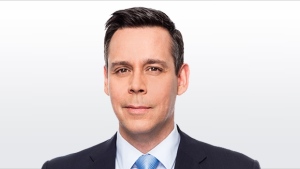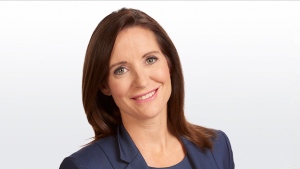Dec 26, 2018
Canada's energy woes reign, Musk captivates: BNN Bloomberg personalities reflect on 2018

There were many worthy contenders for the top business story of 2018. From Canada’s struggling energy sector, data privacy breaches, global trade wars, to the high-profile arrest of Huawei’s finance chief and the ongoing political drama in Washington, D.C. BNN Bloomberg’s personalities have overwhelmingly voted in favour of one. Below, they state their cases for the top story of the year, who the most compelling business leader is, and what merits a close eye in the new year.
 Paul Bagnell, Anchor, The Street
Paul Bagnell, Anchor, The Street
Most important story of the year: The collapse in Canadian oil prices, as large volumes of western Canadian oil were stranded because of a lack of takeaway capacity. It provoked the federal government to buy a huge pipeline project and the Alberta government to order companies to cut their production. It took tens of billions of dollars out of the Canadian economy.
Most compelling business leader: I choose Michael Medline, the CEO of Empire (the owner of Sobeys and Safeway). Medline shows how important the top job is at major corporations. He arrived at a company that had botched the integration of a major acquisition (Safeway) and not executing well across its business. The company’s results in 2018 show his turnaround plan is working. Empire is closer to performing to its potential, and shareholders have been among the beneficiaries. He often talks to unhappy customers directly on the phone.
What to watch in 2019: A possible start to construction on the Trans Mountain pipeline expansion project. If Ottawa can’t get shovels in the ground during 2019, it will be a big disappointment to Canadians who feel we must get our oil to non-U.S. markets sooner rather than later. Civil disobedience around the worksites is likely, and it will be interesting to see how governments, police and the courts respond.
 Andrew Bell, Anchor, Commodities
Andrew Bell, Anchor, Commodities
Most important story of the year: A glaring light fell on the vast economy that has developed to “harvest” and sell consumers’ personal data. And data leaks, which keep growing in size, showed that the information is not secure. The Facebook-Cambridge Analytica data scandal was the trigger for a plunge in Facebook’s stock price. The scale of the leaks has been stunning: Exactis, a marketing and data aggregation firm in Florida, left a database exposed with details of hundreds of millions of Americans and businesses, and “a total system compromise” at Hudson Bay-owned luxury department stores Saks Fifth Avenue and Lord & Taylor exposed five million stolen credit and debit cards.
Most compelling business leader: Steve Laut, executive vice-chairman of Canadian Natural Resources. The oil patch likes to stick to a familiar script of calling for pipelines, deregulation and lower taxes, but he spoke out and complained of industry players who were exploiting the discount in Alberta oil to generate windfall profits. That highlighted a fundamental split between producers and companies such as Suncor and Imperial Oil that thrive on cheap local feedstock for their refineries.
What to watch in 2019: A potential collapse in cannabis stocks if it turns out that ambitious international expansion is elusive and the stuff turns out to be just an agricultural crop after all.
 Greg Bonnell, Anchor, The Real Economy
Greg Bonnell, Anchor, The Real Economy
Most important story of the year: Trump’s trade wars. Canada is a small trading nation and to have our biggest customer threaten to tear up the deal that governs more than $670 billion in annual goods and services trade was a profound threat hanging over the economy. Now that a new NAFTA has been signed (but not yet ratified), Canadians must count on Donald Trump to play by these new rules and treat our country fairly. The drama on the trade file is not over yet.
Most compelling business leader of the year: Compelling (adjective): Evoking interest or attention in a powerfully irresistible way. Given that definition — Elon Musk. I mean, could we look away even if we tried?
What to watch in 2019: Household debt and how Canadian households manage their obligations in 2019. A decade of cheap money has driven household debt to record highs, but the cheap money party has already come to an end. The Bank of Canada has hiked its key rate five times since July 2017, and the effects of those moves are only starting to be felt in the economy. Yes, households have tapped the breaks on borrowing — but the debt remains. Debt will no doubt be one of the top stories of 2019.
 Jon Erlichman, Anchor, The Open
Jon Erlichman, Anchor, The Open
Most important story of the year: The oil crisis.
We are now witnessing a crisis, as Prime Minister Justin Trudeau described it. The dramatic drop in the price of Canadian oil has sparked a national debate over how the country can improve market access and ensure the challenges Alberta is once again facing are successfully tackled by both governments and business.
Most compelling business leader of the year: Elon Musk.
There’s nobody like him. From his social-media slip-ups to his fearless entrepreneurial pursuits, it’s hard to think of any business leader who consistently dominated the headlines like Musk.
What to watch in 2019: The cannabis test.
Now that we’ve seen the legalization of recreational cannabis, dozens of fledgling companies need to prove to hopeful shareholders that their business models are as robust as they have forecasted. Billions of dollars worth of investor money is on the line.
David George-Cosh, Reporter
Most important story of the year: The ongoing drama in Washington, D.C. has kept the world on edge as President Donald Trump’s actions and tweets captivated markets and firmly shifted the U.S. to a more nationalistic foreign and domestic policy stance. Trump’s actions reverberated throughout global trade and economic channels, with the unpredictable former reality television star and real estate mogul trying to — unsuccessfully so far — shake off an investigation into his 2016 presidential campaign.
Most compelling business leader of the year: Sure, Elon Musk can build all the tunnels he wants to change the way how people commute, or send Teslas into space, but the one thing about being a maverick entrepreneur in 2018 is that sometimes your public missteps can become major headlines. Musk’s somewhat flippant tweet about taking Tesla private with assurances he had the capital to do so landed him in hot water with the U.S. Securities and Exchange Commission. He eventually settled with regulators with a US$20-million fine while agreeing to step down as chairman of the automaker for the next three years. Still, despite his mistakes, it’s hard to find any other executive in the world willing to take the kind of risks Musk has made. If we ever live in a world where space travel will be as affordable as riding a bus, we might have Musk to thank for that.
What to watch in 2019: Canada will hold an election at the end of next year and the polls show Prime Minister Justin Trudeau and Conservative Leader Andrew Scheer running neck-and-neck. With hot-button issues in 2018 such as immigration, oil exports and pipeline infrastructure carrying into next year, it’ll be anyone’s guess who will steer Canada into the next decade. Stay tuned.
 Dale Jackson, Chase Producer
Dale Jackson, Chase Producer
Most important story of the year: Canada’s struggle to secure an efficient way to transport our oil and gas to global markets. Finding a cost-effective way to sell our biggest export to the world is critical for Canada’s future, but it’s important to respect the environment and the people directly affected. Diplomacy and compromise are Canadian strengths.
Most compelling leader of the year: Elon Musk. He walks the line between genius and madness. I believe we will have a much better idea of who he is and what he has done in 200 years or so.
What to watch in 2019: Rising fixed-income yields. Sounds boring but it will be nice to be rewarded for good old-fashioned saving. Too many Canadians are taking too big of a risk putting their nest eggs in equities to get a decent return for a livable retirement.
 Amber Kanwar, Anchor, The Open
Amber Kanwar, Anchor, The Open
Most important story of the year: Canada’s attempts to save its energy sector. Did anyone forsee that by the end of this year the federal government would own a pipeline? That a province would start buying railcars to help ship oil? Canada has been trying to come to its own rescue even as some of its wounds have been self-inflicted. When the government rejected the Northern Gateway pipeline and greenlit Kinder Morgan’s Trans Mountain pipeline it set in motion a series of events that would eventually result in Canadians footing the bill and owning that pipeline. And as Trans Mountain is tied up in legal challenges, the Alberta government has been forced to purchase rail cars to get its oil to market. And while Canada is struggling to save itself, where is everyone else? Where is the foreign investment interest? If it is such an attractive opportunity, why does Canada have to go it alone? Some say it is because of onerous regulations, others say this is the consequence of an industry whose best days are behind it as the world moves away from oil. The answer is probably somewhere in the middle. While solutions remain elusive, people’s livelihoods are at stake. How Prime Minister Justin Trudeau handles this will define his legacy for decades to come.
Most compelling business leader of the year: Linda Hasenfratz. The auto sector was in the eye of the trade storm this year as NAFTA was renegotiated. Through it all, Hasenfratz has been a key voice of reason and influencer in how the agreements were hashed out. She has proven herself a calm and stable force not only for the auto industry but for the company she has helmed for 16 years. She stands out as exceptional not only as one of the few female voices to reach her stature, but because of her ability to navigate crisis with astute business acumen.
What to watch in 2019: Everything. It feels like 2019 will be a year of reckoning. Will Donald Trump face the consequences of his unconventional leadership style and alleged misdeeds? Will Facebook be brought to its knees for its appropriation and exploitation of its users data? Will the world economy be able to keep ignoring the mountains of debt that countries have been piling on to eke out basis points worth of global growth? Will central banks be able to quietly back away from a decade of unprecedented monetary stimulus without causing a cataclysmic disaster? The answer to at least one of these questions next year will be “no” and that will cause tectonic shifts in our world views.
 Amanda Lang, Anchor, Bloomberg Markets
Amanda Lang, Anchor, Bloomberg Markets
Most important story of the year: In Canada I can’t think of a more important one than our national pipeline debate. And, tellingly, our failure to make any progress. From this we’ve seen increasing activism on the parts of governments, and new questions about what holds our federation together. It’s far from over and may be the most important existential question Canada has ever faced.
Most compelling business leader of the year: I fear I may lose points for unoriginality, but I have to go with Elon Musk. Visionary genius or madman? History may be the only arbiter on that — but what we do know is that in the face of critics and short sellers, deniers and disbelievers, Musk presses forward with this agenda. And against the odds, managed to produce his Model 3 at scale and on time. While launching rockets and reinventing tunnels.
What to watch in 2019: China’s role in the world — and its responsibility to be a good citizen of the world. The blinders are coming off on the extent of state-sponsored espionage, and it will test the West’s will to do business with China. That tension may define the political agenda and continue to shape markets through 2019.
 Pattie Lovett-Reid, CTV Chief Financial Commentator
Pattie Lovett-Reid, CTV Chief Financial Commentator
Most important story of the year: The Bank of Canada continued its upward trajectory of rate increases. We had been talking about higher rates for so long that when it finally happened, it was almost anti-climactic. However, the good news: the moves bring us closer to a more normalized state after rates having been ridiculously low for so long. This suggests our economy, after almost a decade, is strong enough to handle it.
Most compelling business leader of the year: I continue to watch Finance Minister Bill Morneau closely. In his fall economic update, the energy sector clearly was not front and centre. The frustration was swift and apparent. The oil crisis is amanda not an Alberta problem — it is a Canadian problem. From pipelines to price, there is a lot more to address on this file and I’m looking to the finance minister to lead the charge.
What to watch in 2019: After an extensive bull market in the U.S., volatility will be the “buzz” word in 2019. Investors will be edgy as rising geopolitical risk takes hold with the likes of Brexit and North Korea taking centre stage, and of course the double T’s of trade and tariffs while higher Interest rates are likely to challenge portfolios.
 Catherine Murray, Anchor, The Close
Catherine Murray, Anchor, The Close
Most important story of the year: The arrest of Huawai CFO Meng Wanzhou. The incident and the ensuing fallout encapsulates geopolitics. The tension between China and the U.S., the world’s two largest economies that in turn impact the global economies, have pushed markets to the downside — and has nothing to do with trade. Instead, it has everything to do with the U.S. maintaining world power, and has led to more divisiveness and more protectionism than any tariff. If “it” was about tariffs, the conversation would be over and we’d have moved on. China appears to have conceded by lowering tariffs on autos and buying more soybeans.
Most compelling business leader of the year: The group of Canadian energy CEOs calling out the federal government on the issue of getting pipelines built. They are louder now than they have been and have sparked a healthy debate in this country.
What to watch in 2019: Hopefully a peaceful resolution to the Huawai arrest. I think everyone is watching the Federal Reserve and, importantly, its independence. Does Chair Jerome Powell know how to manage rate hikes and when to pause? Would an academic who has studied economies in recessions, depressions and booms have been better suited for the role?
Anita Sharma, Reporter
Most important story of the year: Global trade battles, quite often sparked by the White House, kept investors and world leaders on edge. No one was immune from the intense volatility that played out in the markets in remarkable fashion and arguably dented key stock performances and optimism for this year and is spilling into 2019.
Most compelling business leader of the year: U. S. President Trump, a.k.a. “Tariff Man,” was — like it or not — a dominant and disruptive force on the global trade stage. The leader of the world’s biggest economy said he was seeking a “reciprocal relationship” but China’s president shot back at the end of the year with a public call for nations to stop dictating to Beijing.
What to watch in 2019: This year capped off with the stunning Vancouver arrest of Huawei’s CFO, so as we look to 2019 let’s see how that extradition hearing plays out and how it may further impact trade relations between Canada, the U.S. and China.
 Tara Weber, Western Correspondent/Reporter
Tara Weber, Western Correspondent/Reporter
Most important story of the year: Living in Alberta, it's hard to point to any other story than the growing anger in the province over the lack of progress with the issues facing the energy patch. A lack of pipeline capacity and growing production have been driving up the discount on Canadian crude oil and squeezing the industry's margins. Tens of thousands of Albertans are still unemployed and the frustration has led to numerous large-scale demonstrations. While the federal government has taken a number of actions, including extending employment insurance, spending $4.5 billion to purchase the delayed Trans Mountain pipeline to ensure its expansion goes ahead and, just this week, announcing $1.6 billion in aid, largely in loans. However, the industry says those measures are not working effectively to solve the main problem: no shovels in the ground to build new infrastructure.
Most compelling business leader: I hate to get political, but it's been fascinating to watch Alberta Premier Rachel Notley over the past year. She began the year as a strong ally to the prime minister and as an old friend of B.C. Premier John Horgan. Throughout the year, she has stepped back, realizing her attempts to collaborate and compromise weren't working. Notley has really come into her own this year by taking a number of actions. As 2018 got underway, we watched her impose a ban on B.C. wine coming into Alberta in response to its opposition of the expansion of the Trans Mountain pipeline. It was largely a symbolic stunt, but it drew attention to how interconnected the two provinces are. With the growing supply of heavy crude and lack of ways to move it out of the province, she called on the federal government to help buy rail cars to increase the takeaway capacity. When it wouldn't offer a hand, she said Alberta couldn't wait any longer and would do it alone. Finally, as the differential soared, she imposed mandatory production cuts on the province's largest producers to curb some of the oversupply. This decision came amid disagreements among the major oil sands players on how to proceed. Her decision appears to have worked; the discount narrowed considerably in the aftermath.
What to watch in 2019: Sticking with the oil theme, it will likely all start to calm down next year. Production cuts are set to take effect in January and will hit the largest producers. Not all players are welcoming the cuts. For example, Suncor has said this intervention is creating market uncertainty and "winners and losers" in the oil patch, and Husky Energy is calling out the Alberta government over "inequities, costs and other unintended consequences of the production curtailment." The cuts will be in place for 2019, but are expected to become smaller as the year goes on. In addition, pipeline operator Enbridge says it's working on “throughput enhancements” to help move even more oil through its existing pipes. Later in 2019, the government's newly-purchased rail cars are expected to start rolling in to begin moving more oil out. And by the end of 2019, Enbridge expects its Line 3 replacement project to be in service. These factors are expected to help eat into the glut of oil in the province and help support prices of western Canadian heavy crude. It will be a nice — possibly brief — reprieve in 2019 as the energy sector continues for wait for the Trans Mountain expansion and Keystone XL project to overcome the hurdles they're still facing.










